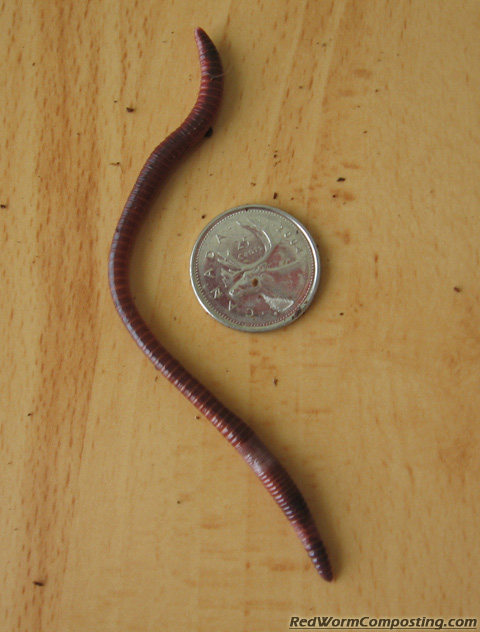Enhance Your Lawn’s Health and Beauty with Red Wiggler Express Lawn Care Products
Enhance Your Lawn’s Health and Beauty with Red Wiggler Express Lawn Care Products
Blog Article
The Amazing World of Red Wigglers: Boost Your Soil Fertility Today
These tiny yet reliable organisms change organic waste into valuable worm spreadings, substantially boosting soil health and promoting sustainable techniques. As we check out the benefits of vermicomposting and the functional steps to develop an efficient worm bin, the prospective influence of these worms on your horticulture success comes to be progressively apparent.
Comprehending Red Wigglers
Red wigglers, medically called Eisenia fetida, are a varieties of earthworm that play an important role in boosting dirt fertility. These worms flourish in organic-rich settings, such as compost heap and decaying plant material, where they eat natural waste and excrete nutrient-dense spreadings. Their special makeup, featuring a fractional body and a clitellum, enables them to recreate swiftly and efficiently procedure large quantities of natural issue.

The eco-friendly significance of red wigglers expands beyond simple waste handling; they add to the soil food internet, fostering a varied area of microbes that better boost soil health and wellness. Recognizing the biology and behavior of red wigglers is essential for harnessing their full capacity in sustainable farming and gardening methods.
Advantages of Vermicomposting
(Lake Rhodhiss Bait)Using the power of red wigglers through vermicomposting offers various benefits that dramatically boost soil health and wellness and fertility. One of the main benefits is the production of nutrient-rich worm spreadings, which are an excellent all-natural plant food. Red Wiggler Express. These spreadings have essential nutrients like nitrogen, phosphorus, and potassium, promoting robust plant development and enhancing crop returns
The presence of worm spreadings improves soil structure, permitting for far better water retention and water drainage. Red wigglers assist damage down natural issue, speeding up decay and reusing nutrients back into the soil.
Vermicomposting likewise fosters microbial activity, which is important for a healthy and balanced dirt ecosystem. Beneficial microbes flourish in the visibility of worm spreadings, aiding in the malfunction of organic materials and boosting nutrition availability to plants.
Finally, vermicomposting offers as an efficient waste administration option, lowering garbage dump waste by recycling kitchen area scraps and other organic materials. This not just adds to ecological sustainability however also promotes a round economic situation within horticulture and farming.
Exactly How to Set Up a Worm Container
Establishing a worm bin is a straightforward process that can substantially enhance your composting efforts. Begin by selecting an ideal container, which can range from a readily available worm bin to an easy plastic or wood box (Red Wiggler Express). Ensure the container has adequate ventilation; small openings in the lid and sides will help with air blood circulation
Next, produce a bed linens layer to provide a comfy atmosphere for the red wigglers. This can be made from shredded paper, cardboard, or coconut coir, dampened to a moist, sponge-like uniformity. Load the container to about one-third full with this bed linen product.
When the bedding is prepared, it's time to introduce the worms. Red wigglers thrive in organic waste, so location them gently onto the bed linens. Cover the worms with a light layer of additional bed linens to aid them acclimate.
Feeding Your Red Wigglers
Giving the appropriate food for your red wigglers is important for their health and the effectiveness of your composting system. Red wigglers prosper on a different diet regimen, primarily containing organic products such as fruit and vegetable scraps, coffee premises, and shredded paper. These materials not just offer crucial nutrients yet also add to the microbial activity in the worm bin, which is important for the worms' food digestion.
It is essential to avoid particular foods, such as dairy products, oils, and meats, as these can attract parasites and create undesirable smells. Furthermore, citrus peels and overly spicy foods ought to be limited due to their prospective to hurt the worms. A well balanced strategy to feeding includes monitoring the quantity of food introduced to the container, guaranteeing that it is consumed within a sensible period to prevent excess waste accumulation.
To advertise ideal digestion, it is valuable to slice or shred bigger food items before adding them to the bin. This technique boosts the surface location for microbial activity, facilitating quicker disintegration and enhancing the general performance of your composting system. Frequently observing the worms' feeding behaviors will certainly help you adjust their diet regimen as essential.
Making Use Of Worm Spreadings in Your Garden

(Lake Hickory Bait)Incorporating worm castings into your garden can be achieved by mixing them into the soil or using them as a leading dressing. The slow-release nature of these castings makes certain that nutrients are readily available to plants over an extended duration, reducing the requirement for synthetic fertilizers. Furthermore, worm castings include advantageous microbes that advertise healthy dirt communities, enhancing the general strength of your garden.
To make best use of the benefits, objective to use approximately one part worm castings to 3 parts dirt in your growing beds. Routine applications can cause boosted plant yields and healthier plants, making worm spreadings an invaluable source for both beginner and experienced gardeners alike. By using this natural modification, you can cultivate a flourishing garden while adding to lasting horticulture practices.
Verdict
In conclusion, red wigglers exemplify the crucial role of vermicomposting in improving dirt fertility. Their ability to convert organic waste right into nutrient-rich spreadings significantly enriches dirt structure and supports microbial variety.
Report this page